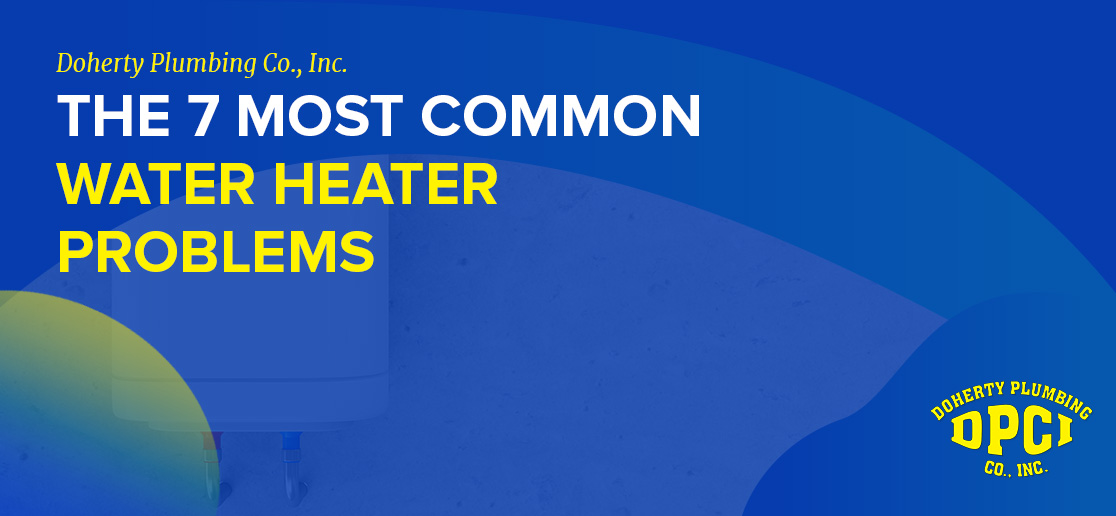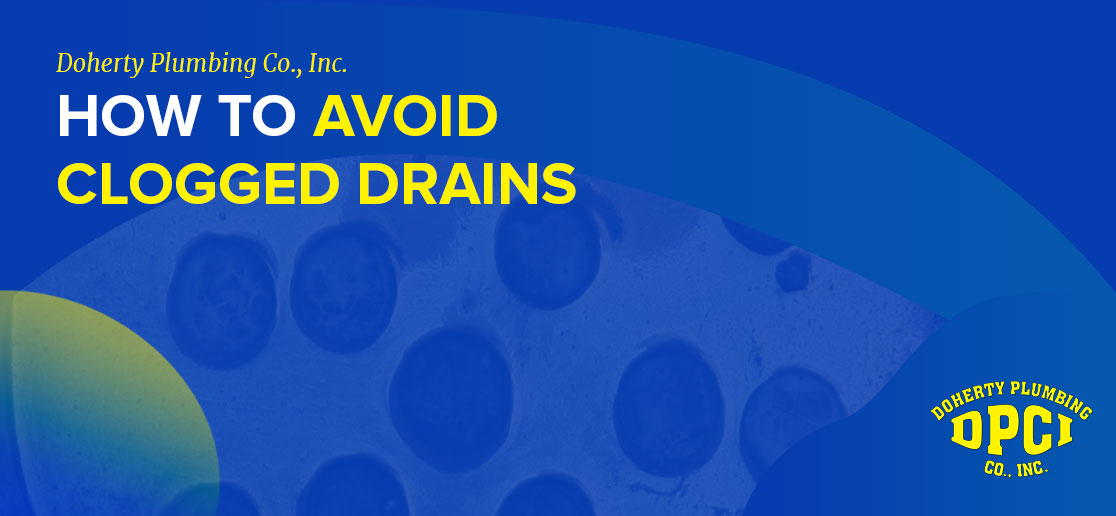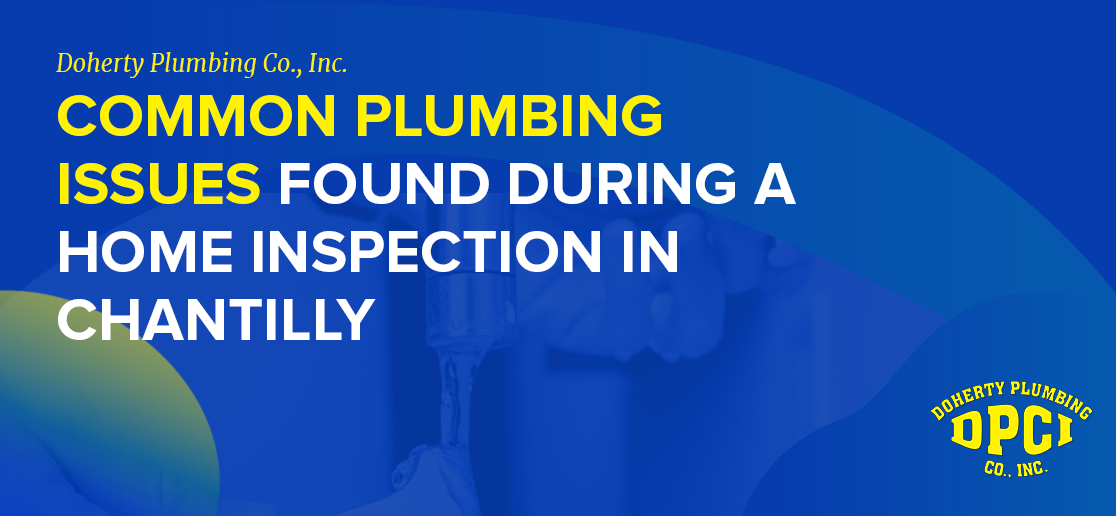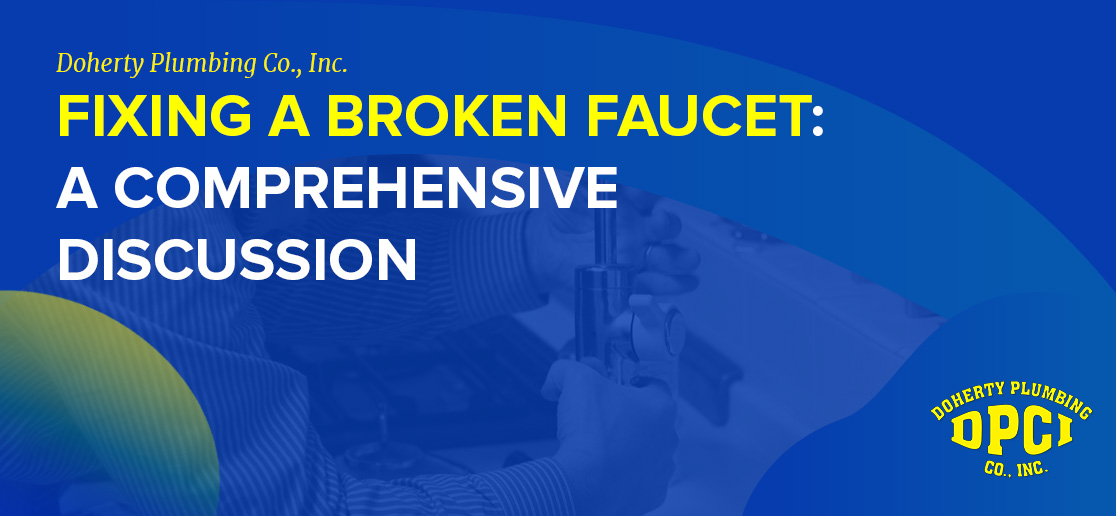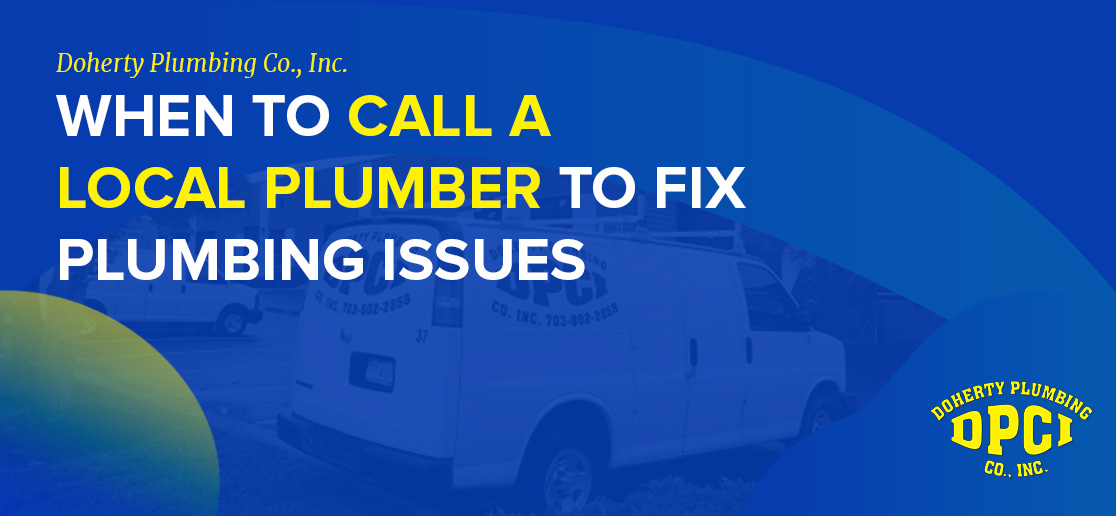3 Reasons to Install New Gas Piping
The most worrisome fact that several people have no idea of is that approximately 70% of energy is lost in transit and production, making electric devices only around 30% effective. You may be surprised to learn that the delivery and separation of gas only results in about a 10 percent loss, making your gas-powered appliances about 90% effective!
Several homeowners are considering switching to gas-powered appliances due to the efficiency gap between electric and gas-powered equipment. It is just one of the advantages of using natural gas to run your equipment.
Here are the three advantages of a gas pipe if you need further convincing. Although the original price of installing and acquiring gas devices is high, the ongoing maintenance costs are typically cheaper.
Efficiency

When it comes to cooking, operating gas equipment, and warming the home, natural gas is the most efficient option. It produces direct heat that can be used inside and out. It generates more warmth than other types of energy.
When baking on a gas burner, you can adjust the temperature more effectively. It does not retain latent heat like an electromagnetic coil can after the flame is turned off. It produces a consistent flame.
Natural gas-powered gear and appliances use less power than electric-powered equipment. Heaters, furnaces, dyers, or laundry machines are among them.
Ensuring the Security

Regardless of what happens, safety will always come first. Whenever you have an issue with gas pipelines in your home, you must always think about hiring gas line repair services Chantilly experts for your family’s safety. These experts have gone through extensive training to ensure that they know how to fix gas lines in houses.
You need to hire the assistance of licensed people for this. Mistakes might happen when installing the gas lines yourself because there is always the chance of a fuel leak if the job isn’t done correctly. Leakages in the home caused by illegally connected gas lines are an adverse health hazard. Inadequately placed gas lines in houses can result in gas-based disasters, which you may have read about on the news several times and asked what happened.
Additionally, residents may be exposed to poisoning because of leaky gas pipes. When it leaks, it may emit an unpleasant odor that may alert you if anything is wrong. While it is simple to detect leakages in the house, it is exceedingly dangerous to overlook gas leaks if they first appear. The greatest thing you may do is employ specialists for gas line repairs to ensure the safety of your family.
Safeguards Your Assets
For decades, gas devices have been a vital feature of your home. Most kitchens are completely gas-powered; heaters and cooking equipment all rely on a steady gas supply. All these appliances are manufactured using gas and are quite economical. If you have a damaged fuel line, you should consider hiring an expert for gas line repairs. Do not even consider attempting to solve the situation on your own to preserve a few dollars.
Factors to Consider While Installing New Gas Piping
When installing new gas piping, there are a few things to keep in mind. Gas lines go beneath and throughout your home, therefore homeowners must exercise utmost caution when changing or updating their heating systems.
Hire Licensed Experts

Managing gas appliances or networks is extremely risky, and people must not attempt it on their own. To do the operation properly and according to law, you must contact a licensed and skilled specialist. A licensed expert has the necessary tools and skills for the work. You must make sure that they have the proper documents.
Examine the Pipes
As time passes, gas pipes become more vulnerable to rust and other issues. Whenever a licensed professional arrives on the scene, they will inspect the pipes, but owners can inspect the gas pipes as well. Inspect the pipes with a flashlight for noticeable problems and report the situation to the licensed technician when he comes. If you reside in an old house, make sure to inspect the pipes for external damage at least once a year.
An Old Gas Supply Can Be Retrofitted
When it comes to attaching gas to a new device, using a current gas connection can save you a lot of money. However, the ability to install another device is dependent on the placement of the pipe and the volume. If the connection was not designed to carry another device, the authorized technician will have to track down the source of the fuel in the home and install new pipes from there. Expanding a gas line a few feet without ensuring it is connected can be useless and hazardous.
Remember, if you need to repair or replace your gas line, always contact a licensed and experienced plumbing company in your area.
The 7 Most Common Water Heater Problems
One of the most invaluable appliances in your property happens to be the water heater. It is true that it is not in front of your mind each day, nor is it always visible. However, you depend on hot water that the water heater provides you just about every single day. So, it is evident that even a small problem with your water heater can cause a big disruption. The water heater not working properly can bring your life at your property to a frustrating and screeching halt. Thus, it is important that you are familiar with a qualified water heater repair Chantilly Company.
As a water heater not working effectively can cause big problems, it will be best that you understand a few of the most common and prominent reasons why your water heater has stopped working. If you are familiar with the problems, then you will be able to accurately diagnose the issue which will help you to take the appropriate actions by yourself only. For your better understanding, here are 7 most common water heater issues that you may face if you own a property that has a water heater. You will be able to know what caused the issue and what is the right way to deal with this problem at hand.
H2: Different Types of Water Heater
You must understand that not all water heaters are the same. For this reason, not all water heaters will be repaired the same way. However, they all tend to deal with mostly the same problems. Out of the different models available, the electric water heater is the most common and popular one. You can find some common problems and ways to fix the electric water heater here.
Tank Water Heater
It is highly recommended that you turn off a tank water heater before you go ahead with the troubleshooting process. If you have an electric model, then you must first switch off the heater at the service panel. After that, you need to use a con-contact voltage tester to make sure that there is no form of electrical current. On the other hand, if you have a gas model then all you have to do is turn the thermostat to the “off” position.
1. Water Leaks

The most common type of water heater problem that you will face will be water leaks. Eventually any water heater will start to leak; it is likely that the water will corrode your tank. It can even create microscopic fractures or cracks.
If you see the leak happening or coming from the top of the tank, then it may mean that your water connections are loose. On the other hand, if the leak occurred at the bottom, then you might be facing issues with condensation. This can be solved by turning up the thermostat. You can face problems like water spilling out from your pressure relief valve or overflow pipe as well. But this could be a sign of tank corrosion also. If that is the case, then you need to replace the water heater as soon as possible.
The other most common causes of water leaks are:
- Issues with ball valve. In such a case, you need to tighten the nut that is screwed in the handle.
- Stripped threaded nipple or loose connection can also be the causes. If the top of the heater is the original place of the water leak, then most likely you are dealing with stripped threaded nipple or loose connection.
- Most water heater repair companies will tell you that drain valves can be an issue as well. You need to make sure that the valve is shut properly. Do replace it when necessary.
2. No Hot Water
There are some reasons why a water heater is not providing insufficient or no hot water:
- Circuit breakers can be a problem.
- Dip tubes can be an issue as well. Replace it after draining the tank.
For gas water heater, you need to look out for:
- Thermocouple.
- Pilot light.
3. Water Too Hot

Some homeowners do not know that they are required to adjust the thermostats of the water heater in warmer months. This will make sure that the water will not become too hot during this time. If the thermostat is broken, then you need to use a multimeter in order to test them for continuity.
4. Water Heater running Slowly
If you notice that your electric water heater happens to be running slower than normal, then you may have a problem with the heating elements. With the help of a testing probe, you can check it out. You may have problems with thermostats as well. You need to check the multimeter if you are facing this.
5. Rusty or Dirty water
Another common water heater problem that plumbing repair companies face is smelly rusty or dirty water. It is a sign that the other rod that is present in the heater requires changing. You need to flush your tank after you have done the changing procedure.
Tankless Water Heater
Comparatively tankless water heaters do not face as many issues as tank water heaters. Next, there are some more mentioned water heater problems that are common. You need to understand that these problems can occur in tank water heaters as well.
6. Noise Production
If your water heater is making noise, then that means there is something wrong with the appliance. You need to check the pressure valve and look for leaks. Make sure that you clean the water heater often. Many times, the water heater tends to make noise if it is not cleaned.
7. Blockage in the Exhaust or Air Supply

A problem suffered by gas tankless water heaters the most happens to be related to exhaust and air supply. You need to remove any kind of obvious blockages. You need to ensure that the heater can meet clearance requirements.
There you have it; these were 7 most common water heater issues that different types of property holders may face. Beside these mentioned one, there are far more problems that a water heater might deal with. To be familiar with them, do give this one a read. You can now see for yourself that this task of finding the root cause of the problem can get difficult. Thus, it is highly recommendable that you take help from a qualified water heater repair company. There are plenty of professionals that can provide you the necessary help in and around Chantilly. So, get in touch with us today!
5 Signs That Your Sump Pump Needs to Be Replaced
As an established homeowner, you already know the essence of having a working sump pump in your home. It is practically your last line of defense from a flooded basement and expensive home repairs as a result of water damage. It is essential that you get your sump pump checked from time to time. You do not want to be caught pants down with a faulty one in the middle of a storm or hurricane.
Sadly, most homeowners find themselves in such predicaments. Since sump pumps only work when required and may not run weeks at a time, it is hard to notice when they get worn out or even damaged. And that’s where repair services come in. Companies that offer sump pump repair, Chantilly area estimate that such gadgets have a lifespan of 7-10 years. However, such numbers are not cast in stone.
You need to understand that your pump’s life expectancy depends on the amount of water it displaces, its frequency of use, and runtime. For the new homeowners, you may not know how old your sump pump is. At best, have a licensed professional or plumber check it out during late winter or early fall. Remember, your sump pump will be overly busy during spring.
Before we look into some common reasons that render your sump pump replaceable, let us delve into some statistics. Below are the top 5 cities most prone to basement flooding across the US according to Google trends;
- Baltimore
- Dayton
- Buffalo
- St. Louise, and,
- Providence.
Even if you do maintain a regular maintenance schedule, you are bound to sleep with a bit of stress if you live in the designated areas. This may be due to the soil condition, weather or climate, and the rainfall amount. Consequently, your sump pump ends up straining, leading to breakdown. Below are some of the few pointers that it is time for an overhaul or pump replacement.
Your Pump Runs for a Long Time
It simply indicates that your unit does not have the required horsepower to manage the distance to be pumped or the volume of water it is required to handle. Numerous factors go into calculating the size of the pump needed such as pathways, pipe diameters, and the reservoir dimension.
Further, the number of elbow joints means that your pump will require more power to push water through the bends. If the pump is required to push water vertically or uphill, your pump will require more force to push upwards resulting in a longer runtime.
Moreover, prolonged running could point to a faulty float arm and switch mechanism. This could be due to shifting of the pump leading to unresponsiveness of the float, or simply, an underlying issue with its power source. The switch could further be stuck on the on and off position.
Overall, a continuously running sump pump will not handle the water load during floods or heavy rains. You will likely have to replace it.
Frequent Cycling on and off

The frequency in your sump pump cycling on and off may be due to your basement’s small basin. Consequently, the basin finds it hard to manage the amount of water in your basement thereby overstretching your pump’s capability. Therefore, the possibility of your pump burning out is quite high due to overworking.
A large sump pump basin (20-30 gallons) would do the trick compared to a typical 5 gallon one. This will mean modifying your existing basin to handle your basement’s requirements. According to NDSU, your sump hole should have a top that’s at least two feet in diameter. This is geared towards creating space for associated piping and storing ample water between the pump’s on/off cycle. Otherwise, maintaining a smaller basin only leads to an increased probability of installing a new unit.
Motor Failure
As with any motorized machine, the failure of a motor spells doom when it comes to operability. A simple way to assess this is by plugging it into a power source. Typically, the presence of power in the machine but not working points to an underlying internal condition.
Sump pumps have hoses or pipes that expel water from the pit. However, during cold seasons, the pipe freezes making it difficult to get rid of excess water. This causes the motor to increase or work at higher output levels bringing about burnout.
Furthermore, the pump’s motor may suck in quite a lot of sediment prematurely wearing it down. You could install a filter to avoid sucking in debris, though they would need frequent cleaning and occasional replacement. The motor is the pump’s lifeline hence, a defective one automatically leads to replacement.
Your Pump Makes Weird Noises
Sump pumps are not created to make lots of noise. Anything beyond a low humming noise while running should be carefully inspected. A few probable causes for such a scenario would be a jammed impeller or a failed bearing. As with any machine, loud noises are an indication of a worn-out or damaged part. Engage your plumber to ascertain whether a replacement or quick fix is in order.
Remember, as earlier quipped and according to TRIAD, if your sump pump is more than 7-10 years old, no amount of repairs can warrant its effectiveness, thus, you will be better off replacing the unit with a new one.
Frequent Power Outages

Not only is your sump pump part of your plumbing system, but it is also part of your electrical system. Your pump’s electrical system is compromised every time there is a power outage. Blackouts sometimes cause power surges that may destroy the internal workings or electrical components.
To avoid such a scenario, you will need to invest in a generator or a set of rechargeable batteries. Further, you could consider getting a battery-powered sump pump to work with in case your primary pump fails or breaks down.
As we cap it off…
Walking down to a basement full of water is no fun. Despite it being life-threatening, a water-logged basement considerably reduces the value of your house due to wear and tear, not to mention the huge dent in your pocket in terms of repairs. A sump pump stands as your last line of defense. Therefore, you will need to exercise keenness as to your unit’s functionality. In case your unit experiences the above challenges, do not hesitate to engage plumbing professionals. You will be glad you did so.
How to Detect a Possible Plumbing Leak
Water is essential in our homes as long as it is securely confined in a pipe, sink, tub or appropriate equipment. Water on the other hand, may quickly become an adversary if it gets into places, it can possibly harm one’s home structure or furnishings. Unfortunately, plumbing leaks are very frequent these days, especially in modern homes and every home is likely to have at least one.
Furthermore, not all leaks are visible; in fact, they can be rather subtle, making it critical to detect and patch a leak as soon as possible. Every homeowner should know how to locate a water leak and be critical in searching for your own water pipe repair service! Whether you rent or own a house, at some point, you’ve probably found yourself lying awake at night wondering where that drip of water was coming.
Below are the signs and symptoms of a possible plumbing leak.
Read Your Water Meter – If Your House Has One!
You might be curious about how much water you consume in a day. Recognizing that your house has a leak is the first step in leak repair. Reading your meter at the start of the day and end of the day allows you to compare the two totals to determine how much water you and your family has consumed.
This is also the first step in detecting if there is potential leak in your water pipes! Inspect the system for any leaks by switching all your faucets and check at your meter. If it is still spinning, then chances are likely that there is a leak somewhere in your home. As a property owner, you are responsible for maintaining all water pipes and connections from the water meter to private property.
Should you need some experts in plumbing leak problems, get your professional plumber immediately.
RELATED How to Read Your Water Meter
Keep an Eye Out for Leaking Clues
If the supply line under your sink breaks and a shower of water shoots out, you’ll know exactly where the problem is, but other leaks are far more subtle! In a worst-case scenario, water may trickle slowly from pipe connections within a wall, going undiscovered until it causes severe damage. Even though the water meter tests shows that you do not have a leak right now, one might occur at any time in the future, so keep a watch a watch out for:
- A Musty Odor. A continual leak creates the ideal damp environment for mold to develop over time. You may detect black splotches on the exterior of the wall in certain situations, but mold typically grows within the wall where you cannot see it, so a musty odor is a warning sign.
- There is a Leaking Sound. Though some leaks are completely silent. For example, if water is running down a wall stud, other leaks may occasionally be heard, providing you an indication as to where the leak is coming from.
- Discoloration of Walls. This might result from water escaping under the drywall and soaking through to the front. The color of water stains on ceilings and the walls is generally yellowish or brownish.
- Paint that is dripping or wallpaper that is bulging. Both indicate that the wallboard is damp and that the paint or wallpaper is no longer sticking properly. A bulging in the wallpaper, in certain situations, indicates that the water damage is more significant and that the wallboard will need to be replaced.
All the mentioned symptoms indicate a leak, however bear in mind that not all are plumbing leaks. The water might possibly be coming from a leak around a window. In any case, leaks should be repaired as soon as possible to limit the danger of water damage. Immediately contact a water pipe repair services Chantilly company.
Examine the External Use
Leaks do not just occur within the property; they can also occur outside. Attach a garden hose to your outdoor spigots; if water leaks through the connection, change the hose gasket and make sure all connections are secure. Consider hiring an expert to inspect your irrigation system once a year, if you have one. Even a minor leak in a system might waste 6,300 gallons of water each month.
Your Water Bill has Increased
When you see an increase in your water bill, you generally have a reason. If there isn’t a cause for the jump, look around your house for the warning signals mentioned above. Attempt to find a leak as quickly as possible. If you suspect a concealed leak in your house, contact your home plumber. Running water from your toilet is the most typical reason for a high-water bill. Some leaks, such as leaky faucets or a running toilet, are easier to locate.
Cracks in the Wall
When a single leak drips in the same location repeatedly, it creates a tiny shift in the earth beneath your property. You may not notice the change, but your entire home’s structure will. Over time, a small leak might develop a large fracture in your walls. The structure of your home will suffer as the leak continues and the fracture widens.
Also, keep an eye out for a diagonal or vertical fracture in the wall. If you see this symptom of plumbing leak, contact a plumber right away. Otherwise, you may end up putting yourself and your family members at risk.
RELATED Cracks in Walls- Wall Cracks Causes and Cost
Fittings That Aren’t Tight
Inside your walls are the pipes that are generally the initial point of contact for a plumbing leak. They are, however, not the only sort of leak you may encounter. In rare situations, the seals that hold your tub or toilet to the floor might become loose over time. Water and moisture can dribble from these fittings.
When water hits the floor, it can cause sinking or sagging. Examine the bathroom flooring for indications of a leak.
Remember!
Water leak that is detected early might save your resources and prevent tragedy within your homes. Small, gradual leaks in the pipes that run through your walls, ceilings, floors, and foundation are typically the source of hidden leaks. Without you noticing, these leaks may harm your equipment and appliances in your home.
It is not a good thing if there is an issue in the plumbing lines that is preventing water from flowing through the pipes. When a leak is not identified and repaired, it might cause several additional problems.
How to Avoid Clogged Drains
Having a clogged drain is a pain and can lead to wastewater coming into your home and lead to you not being able to use your sinks, showers, or toilet. Thankfully, there are many ways that you can avoid having a clogged drain.
Ways to Prevent Having Clogged Drains
Here are several different things that you can do to avoid a clogged drain.
Lint catcher
Installing a lint catcher on your washing machine hose can help you to avoid getting a clogged washing machine drain. When you wash clothes, pieces of fabric, lint, and other debris can quickly clog the drain. This lint trap is put on the end of the drain hose and will keep this debris from entering the drain line.
Use bacteria

Use bacteria drain cleaners to get rid of organic matter that may clog your drains. If you notice the drain getting slow, you will immediately want to reach for this drain cleaning bacteria.
Never dump grease
You should never dump grease down your drain line. Once the grease cools down, it will harden and form a clog. This can lead to a very expensive repair bill.
Catch hair before it goes down the drain
Hair and soap can cause a nasty clog that can be hard to get out. Use a mesh screen or hair catcher in each of your drains to ensure that hair does not cause any clogging issues.
Never put food down the drain

Never allow any food to go down your drains. Food that goes down the drain can clog the pipes. Consider starting a compost pile for all your food scraps.
Toilet paper
When you flush your toilet, the only thing that you should be flushing down is toilet paper and waste. Never put sanitary napkins or anything else down the drain. You will also want to check your toilet paper to ensure that it is septic tank safe. If not, you may want to consider using a trash can for your toilet paper. After a while, the toilet paper can create a tremendous clog.
Replacing drains when necessary
If you live in an older house and you know the drains were made with cast iron piping, you should consider replacing them. Cast iron piping will break down over time, and when this happens, it can create clogs and backups.
Do not use chemical drain cleaners
When you see your drain getting slow, you may want to use a chemical drain cleaner. While chemical drain cleaners can remove a clog, the reaction that happens can also damage your pipes.
Plumbing maintenance

Getting routine plumbing maintenance like getting your septic system cleaned can help you to ensure that there is nothing wrong with your drain pipes. A plumber can come out and inspect all your plumbing to ensure everything is in good shape. They can also offer drain cleaning services in Chantilly that will help to clean out your pipes.
Hiring A Good Plumber
In addition to doing all the tips above, you will want to have a good plumber on standby. You can do all the things above and can still get a clog. While minor clogs you can get out yourself, there are some bigger clogs that will require a professional. If you try to remove a clog yourself, you may end up damaging the pipes or even making the clog worse.
Doing all that you can to prevent your pipes from being clogged is imperative. If you do notice that your drains are getting slow or notice that they are clogged, call out a professional plumber so that they can help you to remove the clog and restore the functionality of your drain system.
Common Plumbing Issues Found During A Home Inspection In Chantilly
When it comes to purchasing a new home for you and your family, you will want to have a home inspection to ensure that the home is in good shape and that you will know about any repairs that need to be made.
One of the most common issues that are found during a home inspection is problems with the plumbing. When it comes to the plumbing, you will want to make sure that all these issues are found because if left untreated, you could have some serious and very expensive problems.
Piping Issues
There are many issues that can be wrong with the pipes of your potential new home. These include:
- Galvanized pipes. Galvanized pipes were common in homes that were built before 1960. These pipes usually have a lifespan of around 20 to 70 years. Once these pipes start to corrode, they can increase the level of lead in your drinking water, and they can break down to the point of where they burst or leak.
- Polybutylene pipes. Polybutylene pipes first came on to the market in 1978 and were in production until 1995. Unfortunately, this pipe did not stand the test of time. The most common problem with this piping was that the polybutylene would interact with the chlorine in the water, causing corrosion which led to breakdowns. This type of piping is no longer allowed in newly constructed homes.
- Rusted cast-iron pipes. Cast iron piping was common in homes that were built before 1970. Cast iron piping can be perfectly fine, but when it does become rusted, it can lead to leaks and failure of the plumbing lines.
- ABS waste piping. This drain piping was used from the 1980s to the late 1990s. This kind of drain piping is prone to cracks, and if it is found at your new home, you may want to consider replacing it to avoid future issues.
- Uninsulated plumbing pipes. It is common to find uninsulated plumbing pipes during an inspection. This can lead to the pipes being exposed to freezing temperatures. When the pipe freezes, it can crack, causing a leak.
Clogged Sewer Lines

Another common issue found in home inspections is that the sewer line is clogged. Clogged sewer lines can lead to raw sewage coming into the house. This can do a lot of expensive damage to the home, not to mention the risk of illness.
A clogged sewer line can be caused by several things, including tree roots growing into the drain lines, something being flushed down the toilet that should not have been, and failure of the main sewer line. If this is found in the inspection, it should be taken care of quickly.
Issues With The Water Heater

There are several issues that may be found with the hot water heater upon inspection. These include:
- No hot water. There may be several reasons why there is no hot water including that the hot water heater may have failed.
- Inconsistent water temperature. This is an indication that the water heater element is not working as it should.
- Leaking water heater. A water heater can leak from the pressure relief valve, the liner, or the water inlet and outlet valves. If you find that this is the case, you will need to get a water heater replacement before you move in.
- Very old water heater. If the house you are moving into has a hot water heater that is over the age of ten, it is a good idea to go ahead and replace it.
- Sulfur smell. If during the inspection, a sulfur smell is detected, there is a build-up of bacteria in the water heater, and it needs immediate maintenance.
Low Water Pressure

In some cases, your inspector may find that you have low water pressure issues. If this is the case, you will want to find out the cause of the issue. Low water pressure can indicate the following:
- Supply line leaks. There may be a leak somewhere in the main supply line.
- Water source issues. If you have low water pressure, you may have an issue with your water source. Check with your water provider to ensure that there is no problem. If your house uses a deep well, you will want to have the inspector check the well pump.
- Leaky faucets. If there are leaky faucets in a bathroom or the kitchen, this can be the cause of water pressure issues. This issue is a simple one and can easily be fixed by a local plumber.
If your inspector finds any plumbing issues, it is imperative that they are fixed as soon as possible. While some issues are not major ones, the fact is that they can become huge and very expensive problems.
A small leak today could easily become a major leak in the future that causes a lot of damage and the risk for mold build-up. Find a local plumbing company in your area to come out and correct all these issues for you. You will save money and rest easy knowing that your plumbing is in good shape.
5 Common Health Concerns If You Have Plumbing Issues
When it comes to problems with household or commercial plumbing Chantilly residents understand that it’s important to take action before small issues become huge ones. That’s the nature of common situations like cracked pipes, leaky drains, stopped-up toilets, and more. What begins as an almost insignificant annoyance can turn into a costly, downright dangerous emergency if it’s ignored.
What kinds of health problems can spring up from typical plumbing challenges? The following is a very short list:

- Hepatitis
- Chronic headaches
- Gastroenteritis
- Skin infections
- Asthma complications
- Respiratory illnesses
- Bacterial infections
Just about any kind of plumbing situation can lead to health problems. Here’s a close-up look at five of the most frequent health concerns that directly result from plumbing problems:

- One: Gastroenteritis
This severe infection of your intestines, as well as the stomach, can mean a trip to the hospital. Typical symptoms include uncontrollable vomiting and severe diarrhea. The culprit is often contaminated water in raw sewage.
- Two: Severe Allergies
If you have asthma, even a minor plumbing issue can wreak havoc with your health. That’s because people who have asthma are susceptible to pick up infections from dozens of contaminants in standing water, especially pools of water that contain sewage and bacteria-filled substances that come out of leaky pipes. - Three: Mold-Caused Respiratory Illnesses
Mold, in all its forms, is a real enemy of good health. This single substance has the potential to cause a whole host of physical maladies, including fevers, red eyes, fatigue, skin rashes, sinus problems of many kinds, respiratory illnesses, throat irritation, sneezing, chronic coughing, breathing problems, and more. Often, mold builds up in moist areas of a home where leaky pipes have deposited water slowly over a long time. - Four: Hepatitis
Hepatitis is a serious infection of the human liver that can lead to dozens of minor and major symptoms, including vomiting, joint pain, fever, and worse. One of the easiest ways to contract hepatitis is by being near dirty water, especially the kind that pools from a backed-up plumbing system. - Five: Severe Headaches
If you’ve ever had a migraine headache, you know how debilitating the condition can be. While most plumbing issues won’t cause you to have a migraine, almost all forms of dirty water and mold can lead to excruciatingly painful headaches. Some headaches last for several days after exposure to mold, mildew, bacteria, viruses, raw sewage, and human waste.
Don’t Get Sick, Get Plumbing Problems Fixed ASAP.
If your home or office is the site of a plumbing problem, even a minor one, call a professional and get it taken care of immediately. Be wise and take a proactive approach. It’s the best way to forestall costly plumbing bills and what could become rather serious health problems as well.
Fixing A Broken Faucet: A Comprehensive Discussion
The anxiety that a leaking faucet makes you suffer is as problematic as the anxiety that a cheating partner brings. That constant ticking sound makes it hard to sleep at night. Moreover, the spillage is very messy. Never settle for less. This applies to your house’s faucet. As soon as it leaks, consider replacing or repairing it right away.
So Why Does Damage Happen To A Faucet?
A faucet gets damaged due to a lot of factors. The first is time. Of course, if the faucet has been around for many years (say 10-20 at most), it will get busted sooner or later. Regardless of the type of faucet, its brand, and the material that the manufacturer used for making it, a faucet will only last for 15-20 years on average.
The second factor is water pressure. To stop the water from flowing, the faucet only holds or keeps the water from flowing out. If you can’t picture it, think of a faucet as a dam and the water from the pipe as a river. If the water pressure is too strong for the faucet, it gets damaged because the water pressure loosens the fittings. Normally damage occurs on the knob, o-rings, seat and springs, ball valve, etc.
The third factor is the elements, especially heat and rust. Heat and rust can make the faucet develop cracks on its outer and inner components. Water then goes through these cracks. The cause of leaking is minor at first. However, if left alone, it will eventually wreck the whole faucet system.
What Happens If You Don’t Fix A Leaking Faucet?
Increased Water Bills
Since a leaky faucet doesn’t effectively shut off the water flow on your sink, it’s only proper to associate increased water bills with it. The simplest slightest leak can generate an additional $20 on your bills. Twenty dollars isn’t that pricey but accumulate that per day the faucet keeps leaking, and you’ll shake your head in disbelief. Also, aside from money, you are wasting water, which is an insult to 790 million people who don’t have access to an efficient water supply.
Damaged Sink and Countertop

A leaky faucet constantly wets the sink and, sometimes, the countertop. Such constant wetting causes these to develop rust or moss. Such rust or moss damages the sink or countertop by making them more susceptible to denting and cracking. Sometimes, they also cause the sink and countertop to smell.
What Is The Fastest Way To Fix A Leaky Faucet?
The fastest way to fix a leaky faucet is to get it replaced. You can do the replacement. However, please call the plumbers if you’re not very familiar. Sometimes, DIY leaky faucet replacement can cause damage on the hose that attaches to the faucet once it’s being installed. Other reasons why you should call for replacement are:
- the design and construction of the shape make it hard to install
- avoid a lacking flow of water after installation
- avoid breaking the faucet during installment
- avoid the task of finding the right faucet yourself (plumbers already have the best ones in-store)
Still, if you don’t want a faucet replacement service because you don’t want to do the installation process again, go ahead to fix the faucet.
How To Fix A Leaky Faucet?
First of all, if a faucet is leaking, don’t immediately assume that it’s busted. The first thing you have to think about is minor complications that might make the faucet look like it’s leaking. For example, it might be that the water line’s pressure is too intense, someone just forgot to close the faucet properly, there’s leaking on the roof that’s directly above the faucet, etc.
If none of the above causes leaking, the culprit is the faucet, and then these are the steps you should do to fix it:
Turn The Main Water Line Off
Turn the main water line off before starting. While fixing, what you don’t want to happen is to have a sudden stream of water flowing out after removing the faucet, which comes from the pipe that connects to it. If you don’t do this, not only will reinstalling the faucet be challenging, but you and the whole place will get wet.
Remove The Faucet

The second step is to remove the faucet. Doing this is case-specific based on the brand and type of faucet you are about to fix. Still, the most common approach is to loosen the screws or the knot that locks and attaches the faucet to the pipe under it.
Dismantle the Faucet and Clean Everything
Dismantle the faucet after detaching it from the pipe. Again, how to dismantle is case-specific and depends on the brand or type of your faucet. Commonly, the first thing to do is to remove the handle or knob from the faucet since it acts as the lock that binds all other components. After removing it, taking the faucet apart will be easy.
After taking the whole faucet apart, clean everything such as valves, inner hoses, ball valve, cam, packing, etc. Why clean anyway? You have to assume that dirt is the reason why the faucet is malfunctioning. After cleaning, assemble the faucet and reattach it to the pipe to see if there’s no leaking anymore.
Replace the Parts

If the leaking persists even after you have cleaned the faucet’s components, dismantle it again and check for defects on the components. The part of the faucet that commonly suffers from damage is the gasket. When damaged, the gasket shrinks or becomes thin. You can buy a gasket online or in break-and-mortar stores. Bring a sample for size reference.
Conclusion
To repair a faucet by yourself is easy. However, it’s best if you call our faucet repair Chantilly service. We have all the expertise and the essential parts for making your faucet work again. Furthermore, we do everything safely and quietly so that we won’t bother your living space while we’re working. Ring our customer hotline now because we’re waiting.
When To Call A Local Plumber To Fix Plumbing Issues
Plumbers are always ready to help 24/7. Even so, plumbers won’t come unless you request them. Notwithstanding if it’s minor or major, plumbers will always be happy to take on any repair project provided that it falls within their expertise and their available resources.
Nonetheless, calling plumbers when the plumbing problem can be fixed by yourself is a waste of money. As local plumber Chantilly, we want future clients to contact us when they need help. With that, we’ve made this article that provides a round-up of plumbing issues that require a local plumber’s attention.
Leaking That Leads To Flooding
You can fix those leaks by yourself if they only result in minor wetting such as trickles or droplets of water going to the house’s floor or ceiling. However, if the leaking makes your home look like it’s soaked in the Amazon, consider calling a plumber right away.
Flooding that leaking causes is very dangerous. It risks your house to fire and electrocution. This is because the electrical wirings that are near to the floor might have been wet. The existing water in the specific location of your house might then conduct electricity. If you attempt to fix the plumbing in this area without knowledge about safety procedures, you’ll likely be electrocuted.
You Don’t Have The Tools

It’s only proper to call the plumbers if you have the right tools. This agrees with the analogy of not going to the mountain if you’re not wearing hiking equipment or not playing golf if you don’t have golf clubs. You might think that winging it might work on minor plumbing issues. However, this isn’t the case. Tools are always needed when it comes to plumbing. Tools ensure they prevent further damage while the repair is ongoing.
The Gas Pipes For The Heater Are Defective
You can fix leaky water pipes if you know how to do it. But for heater gas pipes, leave the rest to the plumbers. Gas pipes are always tricky to fix. Finding where their issue is coming from requires specialized equipment that analyzes the surrounding air to determine how severe the leaking is and where it’s coming from.
Moreover, gas pipes can lead to fires if you make a mistake. This happens when you fail to isolate the leaking gas while repairing the heater gas pipes yourself. As for plumbers like us, we have a few tricks in our sleeve, preventing this dangerous situation from happening.
The Water Heater Isn’t Working

Call the plumbers if the water heater isn’t working after you’ve done the basic troubleshooting tips. Aside from diagnosing and fixing pipes, plumbers also know about diagnosing and repairing water heaters. They can even make a few recommendations if your water heater is in a state of disrepair. Possible accidents that might happen if you decide to do otherwise are fire breakouts (when repairing gas heaters) and electrocution (when repairing electric heaters).
By the way, plumbers also do water heater installation. This is a task that you can do yourself. However, for the best installation job that doesn’t expose your house to hazards, call plumbers because they evaluate the house to determine the most desirable locations where the water heater should be installed.
The Main Pipes Outside of The House Are Broken
Major pipes are impossible to fix by yourself. Fixing them needs thorough professional evaluation and the use of special plumbing techniques and equipment. The most common fix for broken major pipes is pipe relining. This is something that not all can do since it requires using a large pipe relining device. Note that you can buy this pipelining device online or in brick-and-mortar stores. However, its cost is higher than the repair service that plumbers offer.
If pipe relining won’t work, then pipe replacement is another option. Still, this is something that you can’t do by yourself. Processes involved in pipe replacement are excavation, pipe placement using heavy machinery, and pipe installation. Doing this requires a team of construction workers and plumbers.
A Foul Odor Is Lingering In Your House

Having a foul odor in your house means that the sewer pipes might be experiencing problems. Fixing sewer pipes is a dirty job. Therefore, rather than being parsimonious, it’s better to call the plumbers who can fix those sewer pipes without making a mess of the worksite.
In connection, aside from odor, consider letting plumbers fix those pipes if the toilets of your house won’t drain. This is a messy task that’s better done by professionals, even though expensive. We’ve seen homeowners who did otherwise and found themselves in a very unpleasant situation. Note that plumbers might decide to come if the toilet’s mess became unmanageable due to a failed DIY repair.
The Plumbing Issues Happened During Winter
You might think that it’s justifiable not to call plumbers if the plumbing issues happened in winter since they can’t get to your house quickly. However, winter is when everyone should call for a plumber’s help. Many of the issues that we discussed here become more severe in wintertime.
For example, winter makes the sewer pipes more problematic because it makes the smell more dominant. This happens because the house’s windows can’t be opened to at least let some of the odor escape outside. Another disturbing thing is when the toilet fails to drain, and there are no other toilets at home.
The same also applies to flooding. The water that floods the house in winter due to piping issues can reduce the house’s heat levels. This could also potentially lead to other types of damage that promote cold drafts entrance from the outside.
Conclusion
Local plumbers are always ready to help. We’re only one call away for clients who need immediate plumbing service. Our time of arrival depends on how far your home is from us. Nevertheless, rest assured that we will try to arrive ASAP so that you won’t experience unnecessary delays.
How Plumbing Contractors Fix A Burst Pipe In Your House
If you’re a homeowner, you probably know a thing or two about plumbing problems. Most property owners encounter common challenges like clogged drains, toilets that constantly run, odd noise coming from basement pipe systems, and much more.
It’s possible to fix many minor plumbing problems yourself, including things like slow-draining bathtubs and sinks, but a burst pipe needs professional attention from a licensed plumber.
Burst Pipes are Serious Problems

But what about a more serious event like a burst pipe? Unlike most of the more common plumbing problems, burst pipes can quickly turn into major expenses, create a huge mess, and end up making you wish you had attended to the situation when you first noticed it.
How do professional plumbers fix burst pipes in residential homes? Here’s a quick look at what a licensed contractor might do when they arrive on the scene in response to a “burst pipe” call from a homeowner:
- Cut the Electricity: One of the first things a plumber does is turn off the electricity in the area where the burst pipe is likely located. This is a general safety measure and is why many plumbers use lighted battery-powered headgear.
- Locate the Leak: Experienced contractors know where to look for typical bursts. This essential second step is where the real “plumbing” work begins because the contractor often has to get down into the home’s flooring or walls to identify the precise location of the leak.
- Shut Off the Water: Once the burst location is found, the plumber knows whether the entire home’s water supply or just a portion of it needs to be cut off. Regardless, the third major step of fixing a burst pipe involves shutting off the water supply to the damaged area.
- Do Necessary Repair Work: The fourth and final step pertains to the burst pipes themselves. An experienced contractor knows immediately whether the job will be a minor “fix it” situation or calls for replacing entire sections of pipe. Even the most talented DIY enthusiast should not attempt to replace broken pipes. This is what licensed plumbers do every day and why you should call them.
Like most plumbing problems, you can save a lot by taking care of a burst pipe as soon as possible. Typical expenses to repair a burst pipe can be surprisingly low if you catch the situation early. Waiting can be a costly move, especially if your home is older and is already in need of other plumbing work.
How Do You Know When a Pipe Has Burst?

It’s easy enough to understand that burst pipes are a top priority. But, how can non-professionals know whether their home is suffering from such a dilemma? Plumbers say that there are several common signs of a burst pipe in your home. Be aware that not all of them are obvious, so it’s essential to pay attention to any plumbing-related issues that come up.
When a pipe bursts, you’ll usually notice one or more of the following “symptoms.”
- Noises: Do you ever hear banging, clanking, or squealing noises coming from your home’s pipes? Anything but silence can mean there’s a problem afoot, and you should make a note of where the sounds are coming from and how often you hear them. Have a plumber check them out during an inspection.
- Smell: If your household water smells strange, “rotten,” or downright awful, the likely culprit is plumbing-related.
- Discoloration: In addition to odors, make a note of what your water looks like. Is it discolored in any way? If so, you’ve probably got a plumbing problem on your hands. Be careful never to drink, cook with, or bathe in discolored or smelly water.
- Low Pressure: A more subtle but still grave issue is low water pressure. A broken pipe often leads to a general reduction of household pressure.
- Stains: Do you have water stains on your walls, ceilings, or floors? Unless it’s the result of a spill or a roof leak you already know about, there’s a high probability that the staining is plumbing-related. Call a professional asap.
Get Professional Help

It’s important to contact a plumbing contractor Chantilly residents know and trust when your home suffers a burst pipe. Don’t wait. Even a short delay can turn a small, inexpensive repair job into a major expense and a huge headache.
Be attentive to the general health of your home’s plumbing system. If you notice any of the telltale signs noted above, call a plumber for a thorough inspection. When it comes to plumbing, being proactive is the key to keeping your home’s pipes in tip-top shape.


